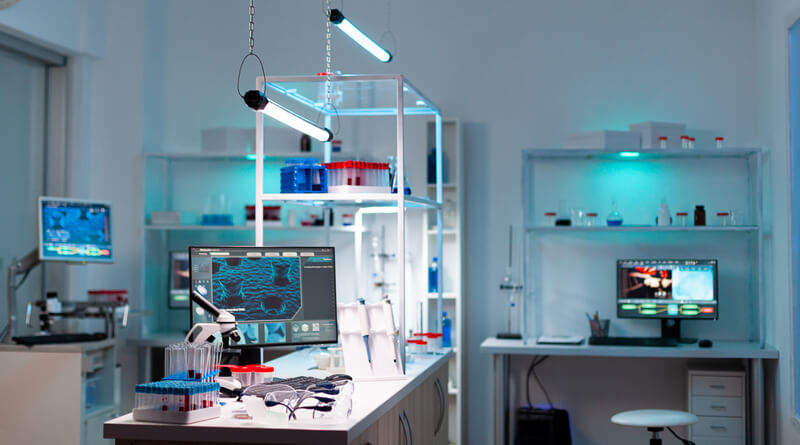Digital Transformation in the Healthcare Industry During Covid 19

The world is a technological hub, and we live in a tech bubble. Everything around us has digitalized, and this revolution is the backbone of every industry today. Technology fuels business and organizational ambitions. These ambitions help create a well-knit world that can be reached out at the click of a button. Co-operation and collaborations among industries are the growing trends. Technology provides efficient ways to bridge gaps and create a holistic and sustainable outlook. The necessity for technology and the need for organizations and industries to adapt it has risen now more than ever in the covid pandemic era. In a world where social contact is prohibited, and complete isolation is a survival method, it is almost impossible to imagine communities sailing through if it wasn’t for technology. It is historic how Individuals of the 21st century battled the pandemic and carried on with portable, hand-sized devices in their hands.

The pandemic also highlighted the need for an efficient healthcare infrastructure that can tackle high demands, as it witnessed apocalyptic times. The surge of patients, demand for doctors, dispersal for treatment, everything saw bumpy roads. In tough times technology resolved a lot of issues. Owing to digitalization in healthcare mechanisms, seeking doctor appointments, query, consultations, etc. have shifted to online platforms, that even includes social media platforms. Technological change in medical services is focused on patient-centered ways to deal with medical care. It will help medical care suppliers smooth out activities, get what the patient requires, construct dedication and trust and offer a superior client experience. A healthcare digital marketing agency helps in amplifying the needs of the healthcare sector and plays a big role in transforming the industry on the whole.
The advancements of digitalization in healthcare incorporate searching through relevant clinical information sites/blogs, working with clinical help, checking the nature of care, and planning and observing the spread of communicable illnesses, and following supplies of medications and antibodies, vaccines, etc.
The developing trends prevalent in today’s technological health revolution, especially during and post-covid era, can be explained as:
Telemedicine: Many online platforms such as apps and websites provide real-time consultations with the doctor at the comfort of their home with no physical contact. Creative forums are changing the manner in which patients communicate with medical services experts. From looking through a specialist to booking a virtual arrangement and speaking with specialists by video or voice call, telemedicine empowers individuals to access wellbeing experts on request. Booking appointments and conducting payments are hassle-free. Usually, in every telemedicine forum, an extensive profile of the doctor is mentioned, along with a consultation fee. The forums or applications provide absolute transparency in their functioning.
However, many experts fear that the issues with regular in-patient visits might occur during online consultations as well – especially healthcare fraud. Fortunately, RightPatient prevents medical identity theft cases during telehealth visits and in-person visits as well. The touchless biometric patient identification has a vast amount of experience in preventing fraudsters from assuming patients’ identities, making it ideal for telehealth sessions.
Big Data Usage: Medical care is one of the promising enterprises where big data can work on preventable illnesses, improve personal satisfaction, decrease therapy expenses, and estimate waves pandemics. A massive amount of data is used to plan strategies in extensive healthcare sectors. Big data helps professionals to comprehend trends and make predictions for the betterment of society. Data is also used to interpret patterns that can serve as valuable insights to provide better care to patients, for example, administration, staffing, scheduling appointments in a clinic or any online forum. Clinical Decision Support Software is used with the help of big data to analyze medical data and provide health practitioners with appropriate resources to make informed decisions. Artificial intelligence (AI)-enabled medical device data or wearable device data can easily be tracked by the health care professional, and this assists in real-time alerting. Human errors are also omitted with the use of technology.
Virtual Reality: Augmented Reality is an innovation that uses digitally produced reproduction of a 3-D picture or climate that permits an individual to hear, see and collaborate by using unique gear, for instance, headsets. The innovation establishes a reenacted environment where clients can communicate and interact. In contrast to customary UIs, VR takes clients inside a virtual encounter rather than just showing a screen. The Healthcare business is embracing augmented reality to convey better consideration to patients. It is used in pain reduction therapies and making physical therapies less stressful and more interactive. Virtual reality can also create stimulation in which doctors, caregivers, or any health care professionals can better understand a patient’s experiences.
Artificial Intelligence: Artificial intelligence is widely used to implement error-free diagnoses and produce pathological images with utmost clarity. Artificial intelligence is under discussion for being used in drug creation and vaccine generation. Health care clinics can also use AI systems for storing records. From discovering links between hereditary/genetic codes to guiding a medical procedure by robots, studying persistent infections, etc., AI is rethinking and renewing current medical services through machines that can appreciate, foresee, learn and act.
Internet of Things: The Internet of things is a network of physical objects (things) that are embedded with sensors, software, and other technologies to connect and exchange data with other devices and systems over the Internet. A collection of fitness bands, wearable devices, and more, help health care professionals, hospital administration, patients, and customers to develop a well-connected information bubble where patient-centric data is analyzed and used to enhance understanding and deliver first-class care. These devices include hygiene monitoring devices, location of equipment in real-time, updates on vaccination slots, infection vulnerability, specific health condition profile, etc. Even health insurance companies can use the devices to check fraudulent claims and verify reports.









Leave a Reply
Want to join the discussion?Feel free to contribute!